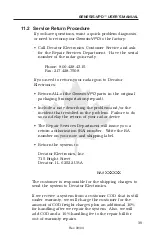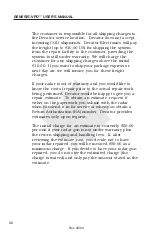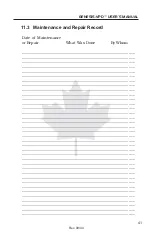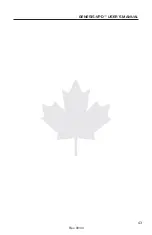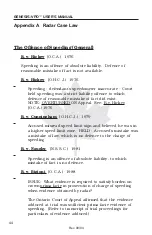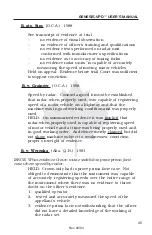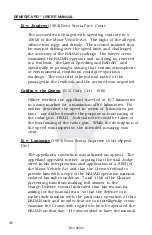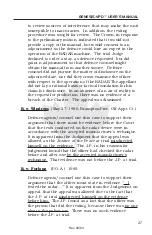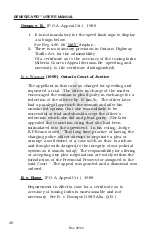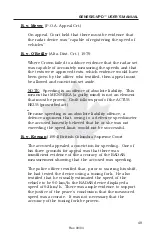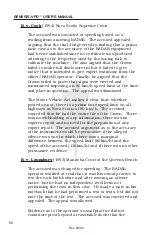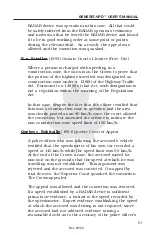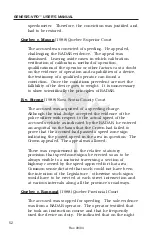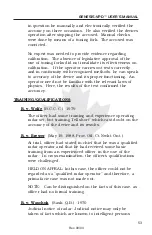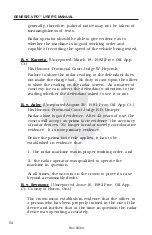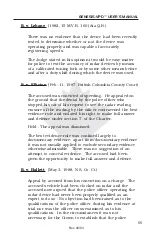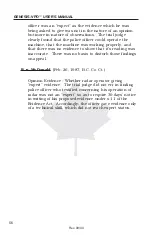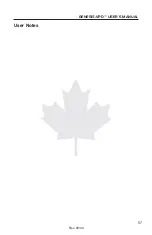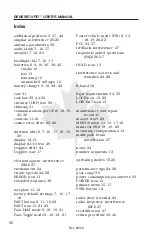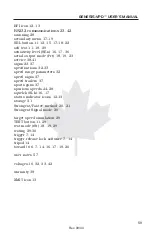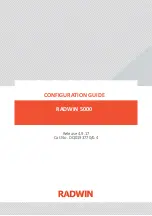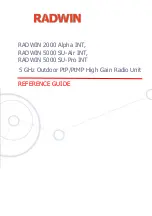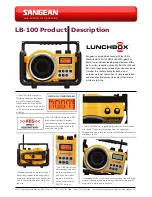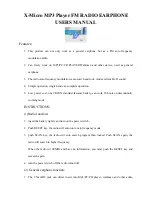
GENESIS-VPD™ USER’S MANUAL
53
Rev. 09/04
in question he manually and electronically verified the
accuracy on three occasions. He also verified the devices
operation after stopping the accused. Manual checks
were done by means of a tuning fork. The accused was
convicted.
No expert was needed to provide evidence regarding
calibration. The absence of legislative approval of the
use of tuning forks did not invalidate its effectiveness on
calibration. If the operator carries out tests correctly
and in conformity with recognized methods, he can speak
to accuracy of the device and its proper functioning. An
operator need not be familiar with the relevant laws of
physics. Here, the results of the test confirmed the
accuracy.
TRAINING/QUALIFICATIONS
R. v. Wolfe
(B.C.C.C.) 1979
The officer had some training and experience operating
radar set, but training “fell short” which cast doubt on the
accuracy of the device and its results.
R. v. Brewer
(May 19, 1988, Prov. Off. Ct. Nwkt, Ont.)
At trial, officer had stated in-chief that he was a qualified
radar operator and that he had received some basic
training from an experienced officer in the use of the
radar. In cross-examination, the officer’s qualifications
were challenged.
HELD ON APPEAL: In this case, the officer could not be
regarded as a “qualified radar operator” and therefore, a
prima facie case was not made out.
NOTE: Can be distinguished on the facts of this case, as
officer had no formal training.
R. v. Waschuk
(Sask. Q.B.) 1970
Judicial notice of radar: Judicial notice may only be
taken of facts which are known to intelligent persons

